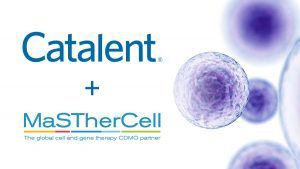
9 BioHealth Capital Region Companies That Are Developing Innovative Vaccines and Therapeutics to Combat Global Health Threats
Beyond COVID-19, there are many infectious diseases that are still causing considerable problems worldwide. Here are just a few of the regional companies that are developing solutions
With diseases like COVID-19, monkeypox, and Ebola, the last few years have highlighted the importance of preparedness and response to global infectious diseases. This includes R&D focused on developing products against current or future global health threats and ongoing R&D efforts aim to expand and improve on these vaccines and therapeutics, developing candidates on different platforms and with better, longer-lasting, or expanded efficacy. Such products can be used during health crises in the US or abroad, to protect and treat travelers, address the burden of infectious diseases that affect many people around the world, and protect against future disease threats in the event of their global spread.
The BioHealth Capital Region is a national hub for global health and R&D; it’s no surprise that the area’s biotech industry also has a large focus on global health products. Below are just a few of the companies developing global infectious disease therapeutics.
60P
60° Pharmaceuticals (60P), located in Washington, DC, is focusing on developing medicines for tropical diseases—diseases that are prevalent in tropical or subtropical areas. These diseases often affect impoverished communities and may occur in both rural and urban environments. 60P has specifically licensed and is developing products to address malaria, dengue fever, pneumocystis, and Zika virus.
With rising drug resistance to existing antimalarials, new drugs for a disease that results in over 240 million cases and 600,000 deaths per year is critical. 60P’s Arakoda® is the first licensed malaria prophylaxis against all life stages of the malaria parasite. While currently only licensed for adults 18 years or older and recommended primarily for travelers, 60P is clinically investigating its use in a monthly dose for children, potentially providing an alternative seasonal prevention method for children from malaria-endemic regions. The drug is also in early clinical trials against SARS-CoV-2 and pneumocystis, a fungal infection common in people living with HIV.
Celgosovir, a alpha-glucosidase I inhibitor, and Modipafant, a platelet-activating factor receptor antagonist, are in 60P’s pipeline for dengue fever treatment, with expectations to move into Phase 2 clinical trials as soon as 2022. With only one vaccine limited to previously dengue virus-infected populations and no dengue-specific drugs, these drug candidates are welcome additions to the pipeline for a disease that causes an estimated 100-400 million infections annually, including severe disease and death.
Dr. Geoffery Chow, co-founder and CEO, has over 20 years of experience in tropical disease product development, including 13 years working with Walter Reed Army Institute of Research and at the U.S. Army Medical Materiel Development Activity in leadership and advisory roles.
Adaptive Phage Therapeutics
Located in Gaithersburg, Maryland, Adaptive Phage Therapeutics (APT) develops bacteriophage technology as a treatment for bacterial infections. Bacteriophage, or “phages”, are viruses that only replicate inside bacteria and cause them to die. Phage therapy has an advantage over traditional antibiotic therapy in that a phage is highly specific for one bacteria strain, versus antibiotics that target multiple types of bacteria, both healthy and pathogenic.
Antimicrobial resistance is a significant global health problem with over- or inappropriate use of antibiotics and can be a challenge when treating bacterial infections. This problem is minimized with APT’s technology, as their extensive phage collection allows for quick identification and administration of another effective phage strain. APT’s phage bank contains hundreds of phage, including those targeting the highest priority multi-drug resistant bacteria. APT’s phage technology was originally proposed by co-founder Carl R. Merril, MD CAPT USPHS (ret) and further developed by the Biological Defense Research Directorate (BDRD) of the US Navy.
Following the successful treatment of its initial patient, Tom Patterson, in 2016 (detailed in Steffani Strathdee’s book “A Perfect Predator”), APT was founded to commercially advance this therapy and it acquired rights to the phage bank. Since 2017, APT’s phage technology has been tested in over 40 patients with life-threatening infections, covering 10 bacterial pathogens. Phase 1/2 clinical trials are underway to test the APT’s phage therapy for treatment of common bacterial infections including Diabetic Foot Osteomyelitis caused by Staphylococcus aureus, chronic urinary tract infections due to Escherichia coli, and Cystic Fibrosis-related Lung Infection due to Pseudomonas aeruginosa. Earlier this year, AMR Action Fund joined Deerfield Management Company, Mayo Clinic, and another institutional investor in APT’s Series B funding as a co-investor, bringing the total investment to $61 million.
Altimmune
Altimmune is a Gaithersburg-based biopharmaceutical company developing peptide-based therapeutics for the treatment of liver diseases, including chronic liver disease caused by hepatitis B virus (HBV) infection. Despite a highly effective vaccine against HBV, there are an estimated nearly 300 million people worldwide living with chronic HBV and 1.5 million new infections a year. Untreated or unresolved HBV disease can result in death from liver cancer and cirrhosis.
Altimmune’s HepTcell™ is a peptide-based immunotherapeutic for treatment of chronic hepatitis B. Composed of nine synthetic HBV-derived peptides with a TLR9-based adjuvant, it has been developed to overcome immune tolerance in chronic HBV infection by restimulating HBV-exhausted T cells for elimination of the virus. Results from Phase 2 HepTcell™ trials in the treatment of chronic HBV are expected next year. Since 2018, Dr. Vipin Garg has been serving as Altimmune’s CEO. He has over three decades of biotechnology and pharmaceutical industry experience, including serving as CEO for Neos Therapeutics, Tranzyme Pharma, and Apex Bioscience.
Integrated BioTherapeutics Vaccines
Antimicrobial resistance is a serious and growing problem globally. In 2019, nearly 1.3 million deaths were the direct result of an antimicrobial-resistant bacterial infection. Rockville, MD-based Integrated BioTherapeutics Vaccines (IBTV) aims to play a key role in fighting antimicrobial resistance by developing vaccines against bacterial infections. It developed IBT-V02, a multi-component vaccine targeting Staphylococcus aureus, to address the global problem with the notoriously hard-to-treat multi-drug resistant S. aureus (MRSA). IBT-V02 is the first completely toxoid-based vaccine, targeting six of S. aureus’ toxins that hinder the body’s natural ability to fight infection. Preclinical studies have shown efficacy of the vaccine in an animal model and the protective effect of antibodies generated from vaccination. IBT-V02 is expected to enter Phase 1 clinical trials this year and is supported by CARB-X, the National Institutes of Health (NIH), and Novo Holdings REPAIR Impact Fund.
IBTV is a subsidiary of Integrated BioTherapeutics, which is also developing vaccines against Nipah virus and filoviruses. Supported by the NIH, the Nipah virus vaccine is a recombinant vesicular stomatitis virus-based vaccine in preclinical development that would protect against this zoonotic pathogen that causes mild to severe encephalitis in humans with sporadic outbreaks in Asia. A pan-filovirus vaccine to prevent hemorrhagic fever caused by a range of filoviruses, including Ebola and Marburg virus, is being developed in collaboration with The Scripps Research Institute, La Jolla Institute for Immunology, Integral Molecular, USAMRIID, and NEIDL. Lead candidates for both indications have shown protection in animal models.
Dr. M. Javad Aman is President and founder of Integrated BioTherapeutics. As Chief Scientific Officer, he leads scientific efforts at IBT and IBTV and brings over 30 years of experience over 30 years of immunology, microbiology, and vaccine and immunotherapeutics development experience to the role.
Longhorn Vaccines
Longhorn Vaccines and Diagnostics develops products for a variety of global infectious disease threats. In addition to innovative reagents, diagnostic tools, and therapeutics, the Longhorn Vaccine Group is developing influenza, tuberculosis, and gram-positive bacteria vaccines in partnership with Walter Reed Army Institute of Research, using their newest adjuvant, ALFQ. The universal influenza vaccine candidate is a synthetic peptide-based vaccine containing multiple conserved viral epitopes to induce immunity against seasonal and pandemic strains. Efforts to develop a universal influenza vaccine are important as they might eliminate the need for a seasonal influenza vaccine. Adjuvant development and testing are equally important to vaccine development, as these products may be able to boost vaccine efficacy.
Longhorn Vaccines and Diagnostics is located in Bethesda, MD, with a research and development facility in San Antonio, Texas.
Medigen
Medigen develops vaccines against a range of global infectious disease threats using varied vaccine technology. Virus-like particle (VLP) technology is the backbone of their influenza vaccines, including quad-subtype and universal influenza vaccines. VLP-based vaccines are an alternative to traditional inactivated virus vaccines, as the particles they include resemble the native structure of different viruses without the genetic information to allow them to replicate. Currently, there are no licensed influenza vaccines based on a virus-like particle platform. A preclinical study recently demonstrated the protective efficacy of a universal influenza vaccine in mice.
Medigen’s patented DNA-launched vaccine technology (iDNA vaccines) is being used in vaccines against several arboviruses of global concern: chikungunya virus, Venezuelan equine encephalitis virus, Japanese encephalitis virus, yellow fever virus, dengue, and Zika virus. Instead of coding for the DNA of an antigen of interest, it encodes an entire inactivated virus genome, allowing for a natural immune response to a safe, live infection. Medigen’s Lassa fever vaccine is a reassortment virus vaccine, with Lassa virus antigens in a non-pathogenic arenavirus background. As the risk for arbovirus spread increases with factors like climate change and urbanization, vaccines against viruses that spread through insects will be essential. Likewise, a new study finds that similar factors may drastically increase the risk of Lassa fever, which can result in severe disease including hemorrhagic fever, in Africa, thus increasing the risk of global spread. Currently, there are no licensed vaccines for chikungunya, Venezuelan equine encephalitis, Zika, or Lassa Fever.
A local company in Frederick, Maryland, Medigen doubled its 6,000 square feet facility to expand operations in 2021. The prior year, it donated $5,000 to Frederick Health, towards the renovation and expansion of the hospital’s Emergency Department, Interventional Cardiology Services, and Intensive Care Unit.
Sanaria
Malaria is a serious global health threat spread by mosquitoes. In 2020, there were an estimated 240 million cases worldwide, with 627,000 deaths, and 95 and 96% of these occurred in the African region. Sanaria recognizes the severe global threat that malaria is, and its mission is to develop and commercialize malaria vaccines to prevent all human malaria. They focus on using whole-sporozoite vaccines with long term protection against Plasmodium falciparum (PfSPZ), the most prevalent and severe disease-causing parasite in the world. Towards their mission, the company has several malaria vaccine candidates in the pipeline from preclinical testing to Phase 1 and Phase 2 trials.
Sanaria’s leading vaccines under clinical evaluation attenuate the live sporozoite, the parasite stage that infects humans directly from mosquitoes, through genetic modification, radiation, or chemoprophylaxis during vaccination. Over 30 clinical trials of these vaccines have been conducted around the world and have shown efficacy in trials in the United States, Europe, and Africa. Phase 2 trials of PfSPZ vaccines were recently initiated in Indonesia in June 2022. In addition to whole-sporozoite vaccines against Plasmodium falciparum infection, Sanaria is also developing and preclinically testing a whole-sporozoite vaccine using Plasmodium vivax, the Plasmodium species responsible for a large amount of malaria cases in Asia and Latin America.
Sanaria is based in Rockville, MD. It partners with and is funded by numerous organizations in the US, Europe, and Africa, including US energy companies and African governments. The EU Malaria Fund awarded them €12.9M for the development of two malaria vaccines, one malaria prophylactic, and a SARS-CoV-2 vaccine.
Valneva
Valneva is another vaccine company focused on global infectious diseases. They have multiple vaccines in development and two vaccines licensed for travelers.
IXIARO® is an inactivated virus vaccine against Japanese encephalitis virus (JEV), the top cause of vaccine-preventable encephalitis in Asia and the Western Pacific, and it is the only JEV vaccine used in the US military. Dukoral is an inactivated oral vaccine licensed for use in the European Union, Australia, Canada, Switzerland, New Zealand and Thailand against cholera. Likie IXIARO®, DUKORAL® is also targeted for travelers, as the risk of exposure to cholera, a bacterial infection that results in acute diarrheal disease, is most likely in areas with poor sanitation and inadequate access to clean water. As such, DUKORAL® would be a useful vaccine for humanitarian crisis or international aid workers.
Valneva is also developing several vaccines against viral and bacterial pathogens, including the leading chikungunya vaccine candidate worldwide. As there is no licensed vaccine against this mosquito-borne febrile disease that causes outbreaks worldwide and can result in chronic disability, this product would be an important global health product. The live attenuated chikungunya vaccine VLA1553 completed its Phase 3 trial in March 2022, showing strong immunogenicity 6 months after one dose in over 96% of those vaccinated. The company is now seeking FDA approval for this vaccine.
Valneva’s inactivated whole virus COVID-19 vaccine, VLA2001 is approved for use in Europe and has recently been recommended by WHO for use, including booster doses. Clinical trials are ongoing to support approval for use in different age groups and as a booster with heterologous vaccines or natural infection.
Valneva has vaccine candidates for Zika virus and Clostridium difficile that have undergone Phase 1 and Phase 2 trials, respectively. With the right partners and renewed stakeholder interest, these vaccines could continue development.
In addition to its R&D, Valneva engages in various corporate social responsibility initiatives around the world and integrates principles of the United Nations Global Compact into its own business strategy and practice. The company has several global locations, including a US-based location in Gaithersburg, Maryland.
VLP Therapeutics
Located in Gaithersburg, Maryland, VLP Therapeutics (VLPT) designs and develops vaccines based on virus-like particle (VLP) technology. Their i-αVLP (inserted alphavirus VLP) platform allows inclusion of pathogen epitopes of interest on the surface of two robust alphaviruses (Venezuelan equine encephalitis virus and chikungunya virus). This technology was used to develop their malaria vaccine candidate, VLPM01, which completed a Phase 1 clinical trial at Walter Reed Army Institute of Research. They have also developed a dengue VLP vaccine for all four serotypes that is in preclinical testing. As there is currently only one licensed vaccine for a virus that causes an estimated 100-400 million infections annually, including severe disease and death, and it is limited to individuals that have been previously infected with dengue, VLP’s dengue vaccine candidate is a welcome addition to the dengue prevention products pipeline.
At the end of last year. VLPT signed a memorandum of understanding with Nobelpharma Co, Ltd, on collaboration for the development and commercialization of malaria and dengue vaccines. It also secured US $21 million Series A-1 funding from six investors, including additional funding from existing investor Sojitz Corporation and new investors Nobelpharma Co, Ltd, and MUFG Bank, Ltd. This funding will support further acceleration of their malaria and dengue vaccines in addition to their cancer vaccine.
- About the Author
- Latest Posts
Dr. Jessica Taaffe works in Washington, DC helping scientists around the world to collaborate and use data science in their infectious disease and global health research. As a global health professional her goal is to help people, directly impacting global health and international development through policy, advocacy, and communication activities. Her research has focused on tuberculosis, HIV, malaria, influenza and much more.







